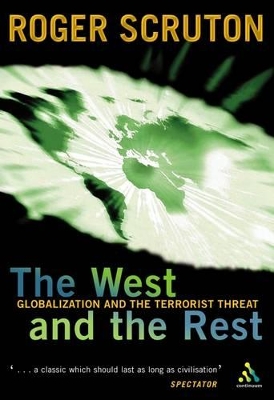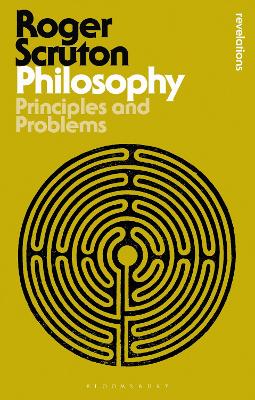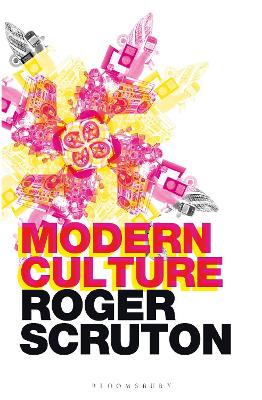Continuum Compact
3 total works
In this astonishing new book, Roger Scruton argues that to understand adequately the roots of Islamic terrorism, one must understand both the unique historical evolution of the state and the dynamic of globalization.With extraordinary perception, Scruton reveals the philosophical and theological roots of the current clash of civilizations. He addresses issues such as the conflict between Islam and secular law, notions of citizenship, fulfilling the human need for belonging, and why globalization provokes such an apparent desire for revenge against the West in some Islamic minds. Scruton's sober, well-informed narrative raises fundamental questions about the West's ability to recover and defend its own religious heritage while delimiting the harmful effects of its decadent hyper-individualism and the culture of repudiation it has sparked both within its own societies and the societies it touches. Finally, Scruton calls for the West to re-examine some of its assumptions about such matters as immigration, multiculturalism, progress and prosperity.
This is a personal view of philosophy from a renowned critic and thinker. In it, Roger Scruton focuses on the ideas and arguments which have attracted him to the subject and which have engaged his attention. He attempts to show how philosophy is relevant not just to intellectual questions, but to life in the modern world. Philosophy - the "love of wisdom" - can be approached in two ways: by doing it, or by studying how it has been done. The second way is familiar to university students, who find themselves confronted by the largest body of literature ever devoted to a single subject. This book follows a more ancient pattern. It attempts to teach philosophy by doing it. Although the author refers to the great philosophers, and in particular to Kant and Wittgenstein, who have been the greatest influence on his thinking, he gives no reliable guide to their arguments. The book makes no attempt to give either a history or a survey of the subject. Instead, it offers itself as a guide to the reader who is prepared to make a personal venture into philosophy. Its aim is to bring philosophy to life.
What do we mean by 'culture'? This word, purloined by journalists to denote every kind of collective habit, lies at the centre of contemporary debates about the past and future of society.
In this thought-provoking book, Roger Scruton argues for the religious origin of culture in all its forms, and mounts a defence of the 'high culture' of our civilization against its radical and 'deconstructionist' critics.
He offers a theory of pop culture, a panegyric to Baudelaire, a few reasons why Wagner is just as great as his critics fear him to be, and a raspberry to Cool Britannia.
A must for all people who are fed up to their tightly clenched front teeth with Derrida, Foucault, Oasis and Richard Rogers.
In this thought-provoking book, Roger Scruton argues for the religious origin of culture in all its forms, and mounts a defence of the 'high culture' of our civilization against its radical and 'deconstructionist' critics.
He offers a theory of pop culture, a panegyric to Baudelaire, a few reasons why Wagner is just as great as his critics fear him to be, and a raspberry to Cool Britannia.
A must for all people who are fed up to their tightly clenched front teeth with Derrida, Foucault, Oasis and Richard Rogers.


